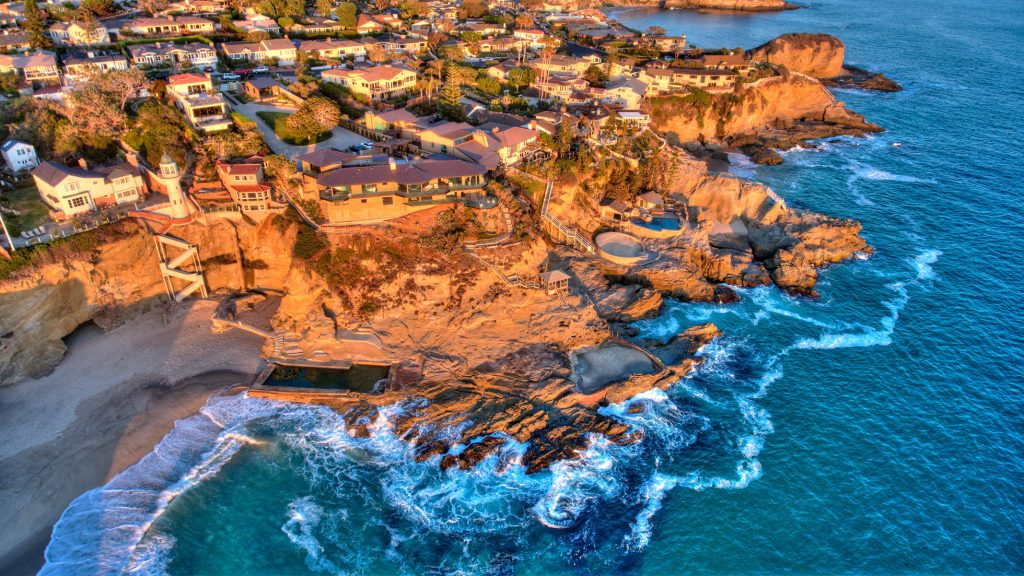The City of Laguna Beach has adopted strict short-term lodging (STL) regulations, limiting where and how short-term rentals may operate. Whether you’re a host on Airbnb, VRBO, or a similar platform, it’s important to know which zoning districts allow short-term rentals and the conditions attached.
This 2025 guide breaks down the updated STL ordinance, registration process, and occupancy rules in easy-to-follow steps.
What Qualifies as a Short-Term Rental in Laguna Beach?
A short-term rental is defined as any residential unit rented for 30 consecutive days or fewer. These rentals are regulated under Chapter 25.23 of the Laguna Beach Municipal Code.
Zoning Rules: Where Are Short-Term Rentals Allowed?
As of 2025, short-term lodging is prohibited in residential zones (R-1, R-2, R-3). Here’s how it’s currently permitted:
- NOT Allowed: No new STL permits are issued in residential zones.
- Allowed with Permits: STL is permitted in the following commercial and mixed-use districts:
- LB/P, C-N, C-1, CH-M
- Downtown Specific Plan Areas: CBD-1, CBD-2, CBD Central Bluffs, CBD Office, CBD Visitor Commercial
- SLV Zone: Requires a Conditional Use Permit (CUP).
Only existing STL units in residential zones with permits issued before October 2020 are grandfathered in as legally non-conforming. These can continue operating, but cannot be transferred or expanded.
Unit Conversion Limits
To avoid oversaturation, the city limits STL conversions:
- A maximum of 20% of units per commercial/mixed-use property may become short-term rentals.
- City-wide cap: No more than 300 STL units total, including older ones.
- Home-share units: 165 units city-wide permitted in single-family, duplex, or triplex homes.
- Properties with five or fewer units may only convert one unit into STL.
- Larger properties can convert up to 20% of units into STL.
Permit & Registration Requirements
Before listing your Laguna Beach property on Airbnb or similar sites, you must:
-
Obtain a Business License
All hosts operating rentals of 29 nights or fewer must have a valid City business license.
Format: ###### (e.g., 123456) -
Apply for a Permit
- Administrative Use Permit (AUP) for most commercial areas
- Conditional Use Permit (CUP) for SLV zoning district
Permit Format: YYYY-XXXX (e.g., 2021-1234)
-
Include Both Numbers in Listings
Your business license and AUP/CUP number must appear in every online listing to stay compliant. -
Exemption Option:
Hosts of long-term stays only (30+ nights) or hotels may file for an exemption.
Each STL permit is valid for a period of three years. To continue operating legally, hosts must renew their permits before expiration.
Occupancy & Guest Rules
Laguna Beach has capped both overnight and daytime guest limits:
- Overnight guests: Maximum two guests per bedroom
- Daytime guests (7:00 a.m. – 10:00 p.m.):
- Two guests per bedroom
- Capped at 20 guests total for homes with 5+ bedrooms
Host Availability Requirement
To ensure public safety and neighborhood peace:
- A local contact, such as the property owner or manager, must be reachable within 60 minutes at all times during the guest’s stay.
What If You Already Have an Older STL Permit?
If your STL unit was approved before October 2020 in a residential zone, it may be grandfathered in as a legally non-conforming use. This usage stays with the land, not the owner, and is still subject to compliance and renewal policies.
Other Regulations to Know
Hosting in Laguna Beach also requires compliance with:
- HOA rules and lease agreements
- Community covenants (CC&Rs)
- Noise, parking, and nuisance regulations
For full compliance, check with your local housing association or the City of Laguna Beach website before listing.
Final Thoughts: Airbnb Hosting in Laguna Beach in 2025
Laguna Beach’s short-term rental landscape is tightly regulated, especially in residential areas. Hosting is still possible, but only within approved commercial or mixed-use zones and with full licensing.
If you’re planning to become a host in Laguna Beach, ensure you follow every zoning, permit, and occupancy rule to avoid fines and keep your listing active.
For help navigating the process or confirming your eligibility, contact the city’s planning department or visit their official website.
Follow the link to learn more about Airbnb management in Laguna Beach.
